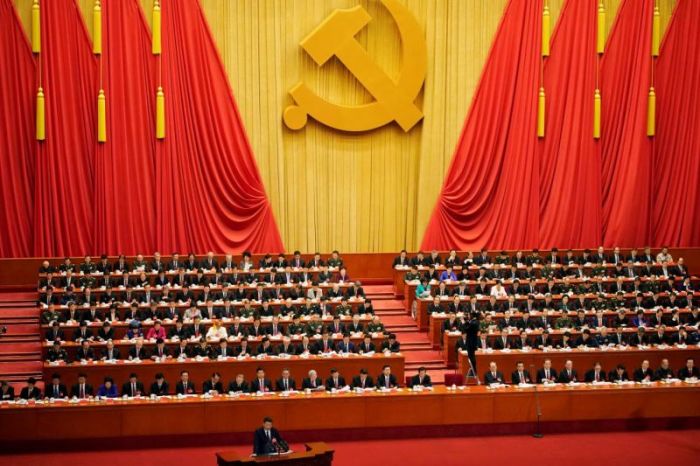China: 84-y-o Christian ordered to pray to Xi over God; cross replaced with image of CCP ruler

Authorities in China replaced a cross in the home of an elderly Christian man with an image of Xi Jinping and ordered him to pray to the country’s president instead of God as part of the Chinese Communist Party’s efforts to “sinicize” Christianity.
The 84-year-old man in Shanxi Province, China, was among a number of Christians in several provinces ordered to remove Christian imagery from their homes and replace them with pictures of Communist leaders, religious rights magazine Bitter Winter reported.
“The township [Chinese Communist] Party [CCP] secretary asked me to take down and throw away the cross and told me to pray to Xi Jinping from then on,” the unidentified Christian told Bitter Winter. “Xi Jinping is a man, not God. I feel saddened for the cross being taken down, but there is nothing I can do.”
Similar reports have emerged from at least five provinces over the last few months, with authorities urging believers — often low-income households reliant on government assistance — to replace crosses and images of Jesus in their homes with posters of Communist Party leaders, or lose welfare benefits.
In June, a village official in Lin County repeatedly ordered villagers through social media to remove all religious symbols from their homes, Bitter Winter reported.
“He stated that the cross symbolized heterodox teachings, which should be purged as per orders from higher authorities. If not, they will be held criminally accountable. The official stressed that impoverished households must replace the symbols with images of Xi Jinping,” the outlet said.
Officials in Lin County threatened to cancel poverty alleviation allowances if Christians refused to discard their faith-based books and other items. One Christian told Bitter Winter that every household was ordered to display portraits of Xi and that residents were to provide photos of themselves beside them.
In the southeastern province of Jiangxi, officials tore down crosses and other Christian imagery in the homes of officially recognized Three-Self Church members. When challenged, the officials told believers they were implementing state-issued orders.
“Though reluctant, the impoverished Christians had to remove the symbols since the officials threatened to cancel their subsistence allowance if they disobeyed. People must follow the party that gives them money, not God, the officials claimed,” Bitter Winter said.
It was previously reported that in April, the government of Xinyu city in the southeastern province of Jiangxi canceled a disabled Christian’s minimum living subsidy and a monthly disability allowance of 100 RMB (about $14) because the believer continued to attend worship services despite government orders.
In 2017, CCP officials visited believers’ homes in Yugan county of Jiangxi province and removed 600 Christian symbols from Christians’ living rooms, and hung 453 portraits of the Communist leader in their place, according to a report from the South China Morning Post.
SCMP, a newspaper that kowtows to the communist regime, claimed the move was part of a state-sponsored campaign to alleviate poverty in the region since some CCP members believe families’ faith is to blame for poverty.
“Many poor households have plunged into poverty because of illness in the family. Some resorted to believing in Jesus to cure their illnesses,” the head of the CCP campaign told SCMP. “But we tried to tell them that getting ill is a physical thing, and that the people who can really help them are the Communist Party and General Secretary Xi.”
Last year, authorities with the CCP removed the Ten Commandments from nearly every Three-Self church and meeting venue in a county of Luoyang city and replaced them with the president’s quotes.
Following the implementation of revised religious regulation rules in February of 2018, Communist officials have shut down churches, arrested congregations, and attempted to rewrite the Bible in efforts to free religion from perceived foreign influence,
China’s campaign to sinicize religion originated in a speech by Xi at the National Religious Work Conference in April 2016. At the time, Xi stated that in order to “actively guide the adaptation of religions to socialist society, an important task is supporting China’s religions’ persistence in the direction of sinicization.”
Persecution watchdog Open Doors USA ranks China at No. 23 on its list of 50 countries where it is most difficult to be a Christian. The nonprofit notes that while China’s constitution protects the right to religion, houses of worship are often tightly controlled and even shuttered if deemed too large, too political, or invite foreign guests.





























